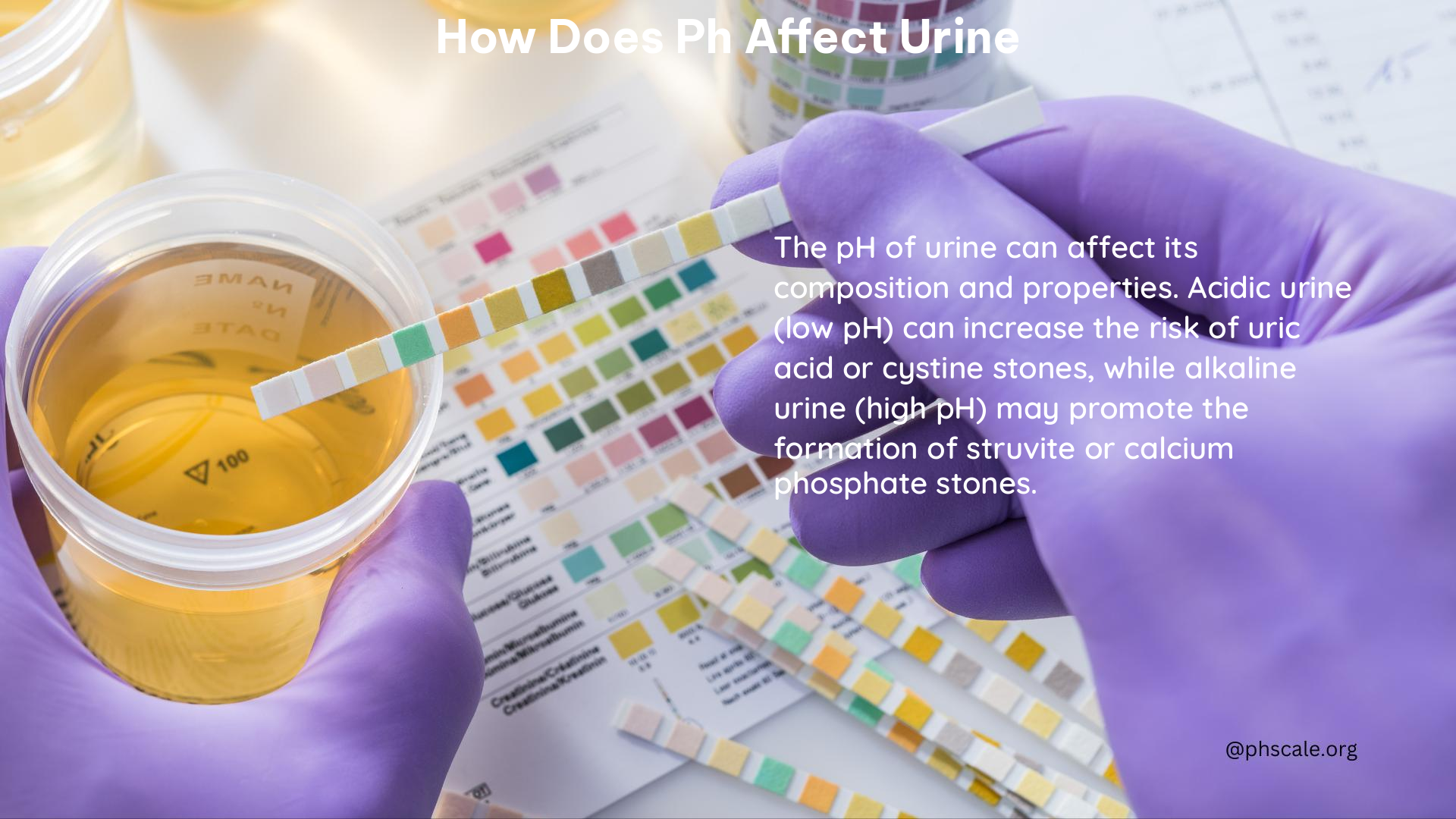The pH level of urine is a crucial indicator of overall health and can be influenced by various factors, including diet, medical conditions, and medications. Understanding how pH affects urine is essential for maintaining a healthy urinary system and preventing potential complications.
Normal Range of Urine pH
The normal range of urine pH is between 4.5 and 8.0, with an average pH of around 6.0. This range is essential for maintaining a healthy urinary system and preventing the formation of certain types of kidney stones.
Factors Affecting Urine pH

Diet
A person’s diet can significantly impact the pH of their urine. A diet high in fruits, vegetables, and non-cheese dairy products can increase urine pH, making it more alkaline. Conversely, a diet high in fish, meat products, and cheese can decrease urine pH, making it more acidic.
Medical Conditions
Certain medical conditions can also affect the pH of urine. For example, kidney stones can form in highly acidic or basic environments, and urinary tract infections (UTIs) can cause alkaline urine.
Medications
Certain medications, such as acetazolamide, ammonium chloride, methenamine mandelate, potassium citrate, sodium bicarbonate, and thiazide diuretics, can alter urine pH levels.
Impact on Kidney Stones
Acidic Urine
Acidic urine (pH < 6) can contribute to the formation of certain types of kidney stones, such as uric acid stones and cystine stones.
Alkaline Urine
Alkaline urine (pH > 7) can contribute to the formation of other types of kidney stones, such as calcium oxalate stones and phosphate stones.
Role in Diagnosing Urinary Tract Infections
Alkaline Urine
Alkaline urine can be indicative of UTIs caused by urease-producing bacteria like Staphylococcus aureus and Proteus spp., which increase urine pH to improve their survival.
Acidic Urine
Acidic urine can help prevent certain UTIs, as bacteria have difficulty surviving in acidic environments.
Home Remedies and Lifestyle Changes
Dietary Adjustments
Eating a balanced diet with a mix of acidic and alkaline foods can help maintain a healthy urine pH. Increasing fruit and vegetable intake can make urine more alkaline, while reducing meat consumption can make urine more acidic.
Hydration
Drinking enough water can help dilute urine and maintain a healthy pH.
Avoiding Certain Medications
Avoiding medications that affect urine pH, such as those mentioned above, can help maintain a healthy urine pH.
Contaminants and Chemicals
Bacteria
Bacteria from the genital area can contaminate urine samples, affecting pH levels. The clean-catch method helps minimize bacterial contamination.
Medications
Certain medications can alter urine pH levels, making it essential to inform healthcare providers about any medications being taken.
Solutions and Alternatives
Urine pH Testing
Regular urine pH testing can help identify any imbalances and guide dietary and lifestyle changes.
Dietary Supplements
Certain supplements like potassium citrate can help maintain a healthy urine pH.
Medical Treatment
In cases of kidney stones or UTIs, medical treatment may be necessary to address the underlying condition and restore a healthy urine pH.
In conclusion, the pH of urine is a crucial indicator of overall health and can be influenced by various factors, including diet, medical conditions, and medications. Understanding how pH affects urine is essential for maintaining a healthy urinary system and preventing potential complications.
References:
– Dennis J. Chew DVM, DACVIM, … Patricia A. Schenck DVM, PhD, in Canine and Feline Nephrology and Urology (Second Edition), 2011
– Mount Sinai – New York, Urine pH test Information
– WebMD, What to Know About a Urine pH Test
– MedicalNewsToday, Urine pH: Normal ranges and what they mean
– Healthline, Urine pH Level Test: Purpose, Procedure, Results & More
